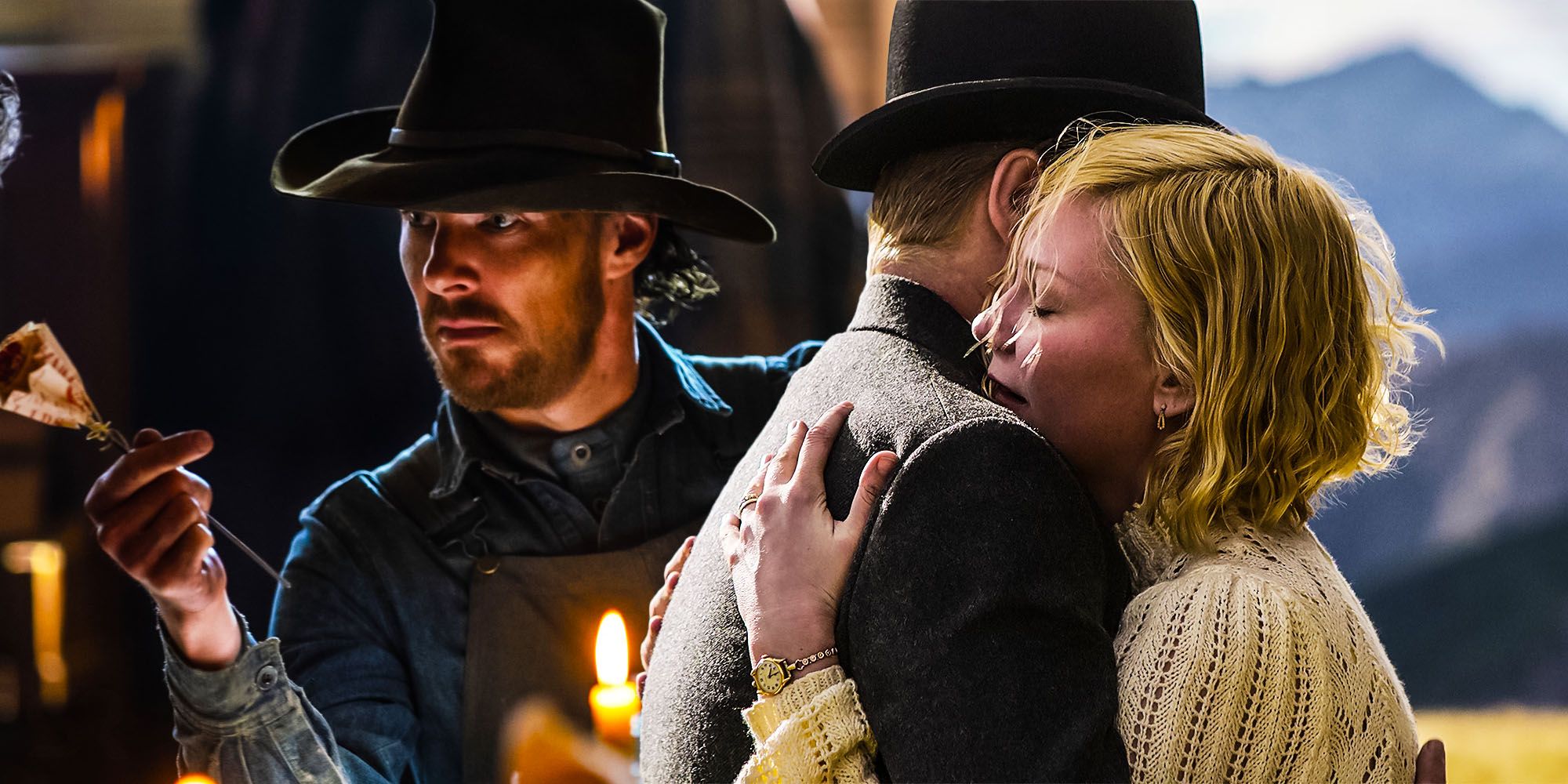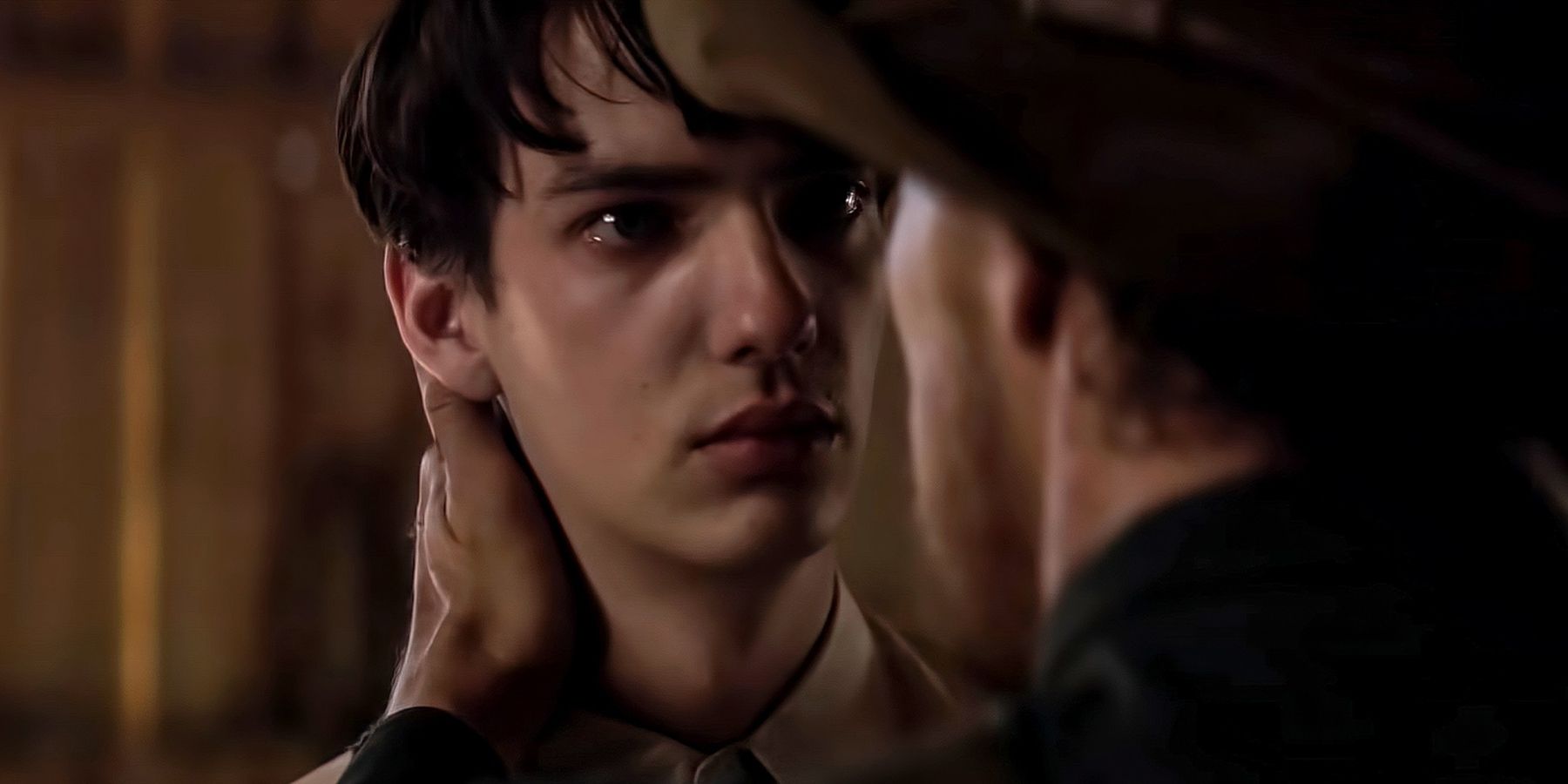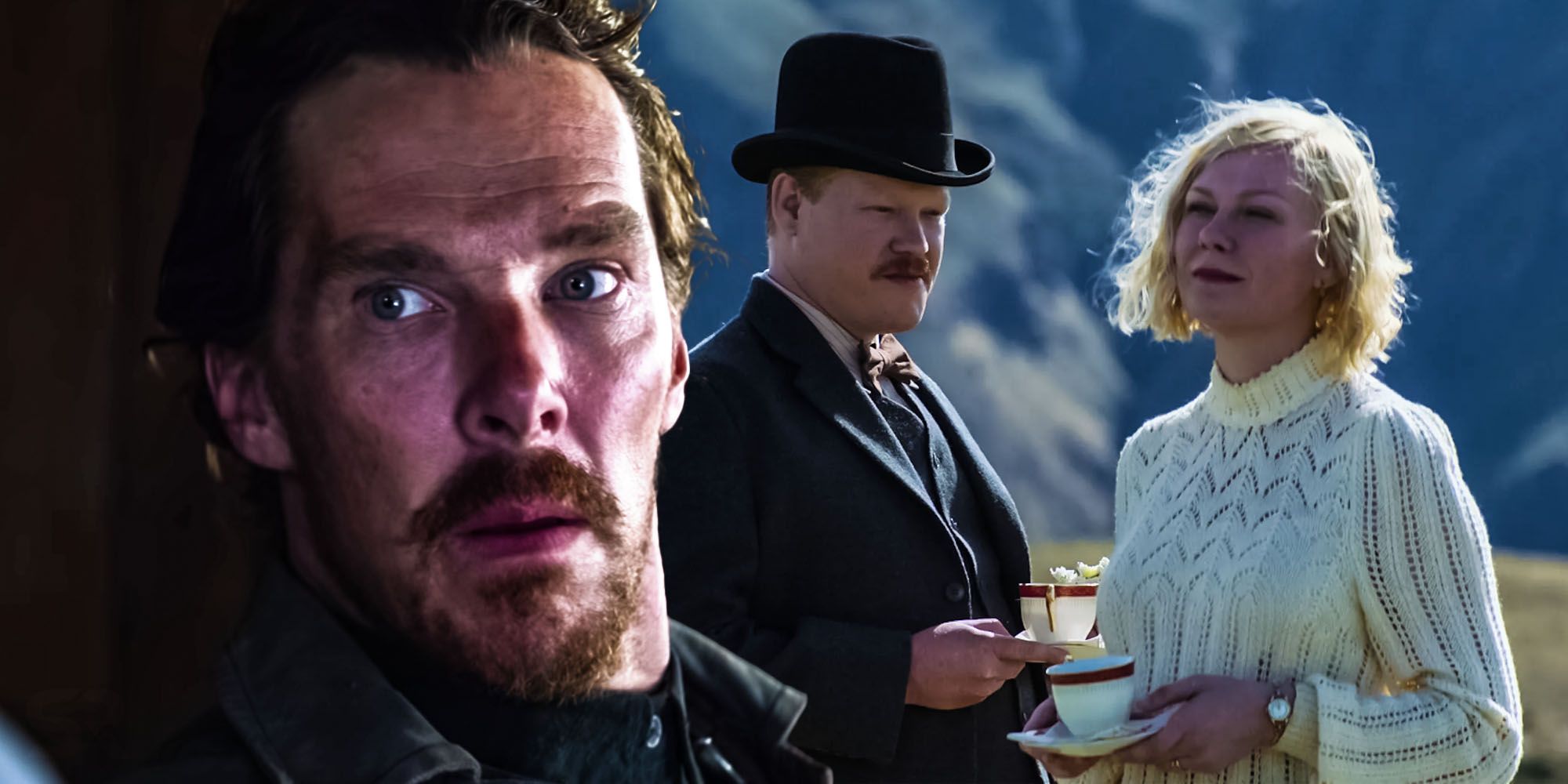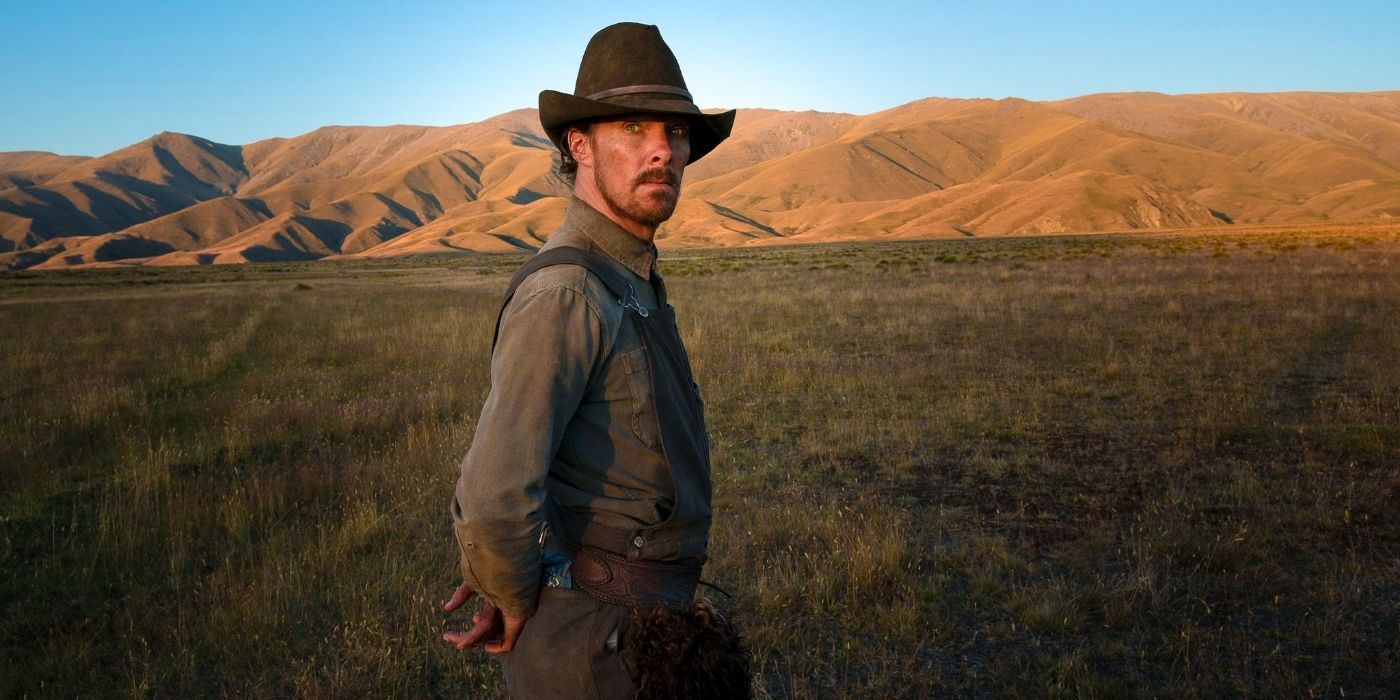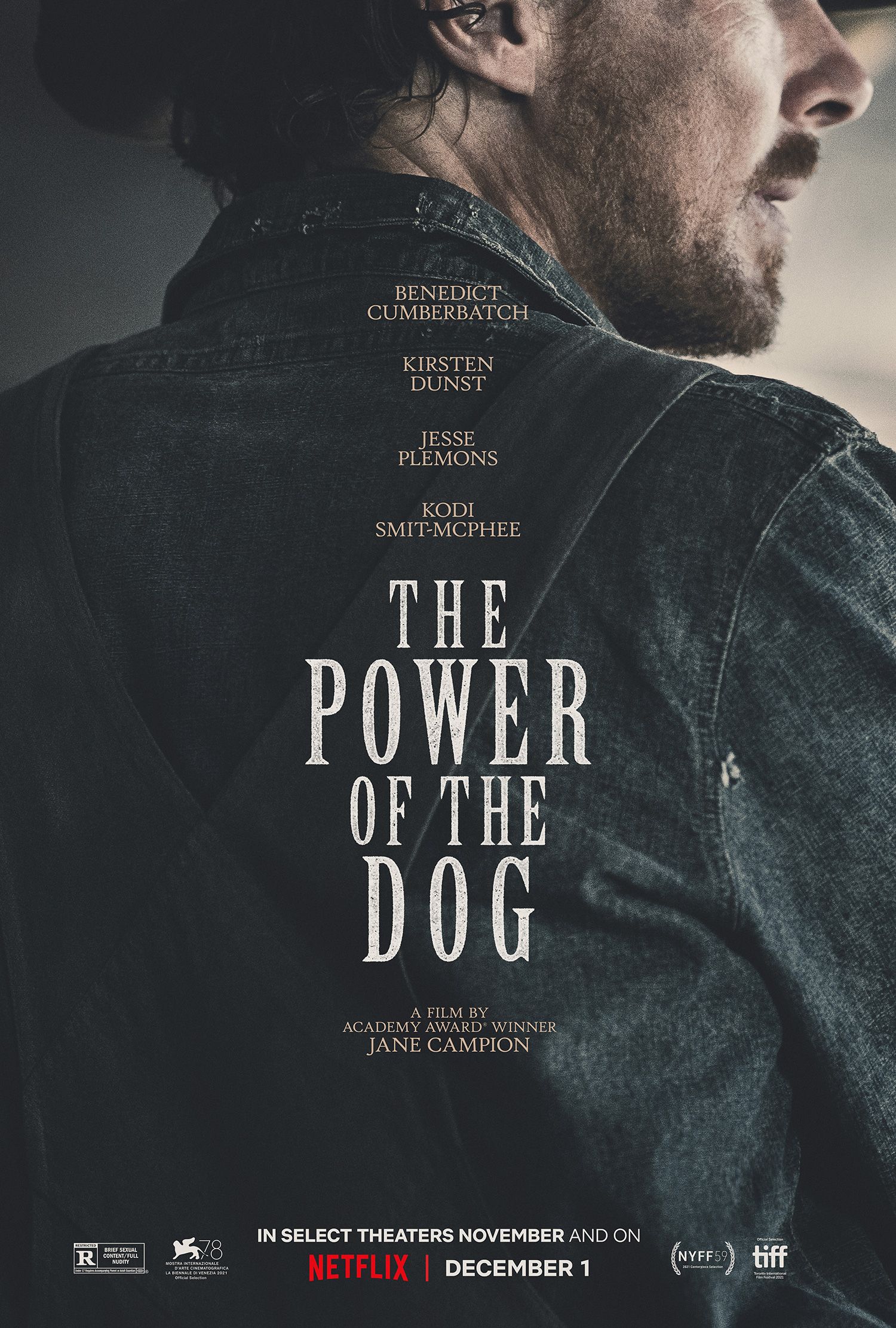Summary
- The Power of the Dog's ending subverts Western genre conventions and challenges traditional notions of masculinity, leaving viewers with questions and a sense of discomfort.
- Peter's intentions with Phil are revealed as malicious, as he poisons him to protect his mother from Phil's cruelty and toxic masculinity.
- The film explores themes of toxic masculinity and the struggle for connection, portraying Phil's downfall as a result of his abusive behavior and his inability to express his true self.
The Power of the Dog ending painted the whole story in a new light while leaving a lot of questions unanswered. The Power of the Dog earned high acclaim and awards recognition, including a win for Best Director for Jane Campion. It is also a complex and challenging movie that can take multiple viewings to read deeper into its characters' intentions. The Power of the Dog stars Benedict Cumberbatch as Phil Burbank, a successful yet bitter rancher whose brother George (Jesse Plemons) brings home his new wife Rose (Kirsten Dunst) and her son, Peter (Kodi Smit-McPhee).
Instead of shootouts and tough-talking, The Power of the Dog relies on tension and intimate discomfort as it builds to its shocking ending. The unexpected relationship that grows between Phil and Peter is at the center of the climax only to go in another unexpected direction by the conclusion of the story. The ending is rather grim and doesn't go in the traditional Western route. In its departure from genre conventions, The Power of the Dog subverts Western masculinity tropes rather than reinforcing them — particularly at the film's ending.
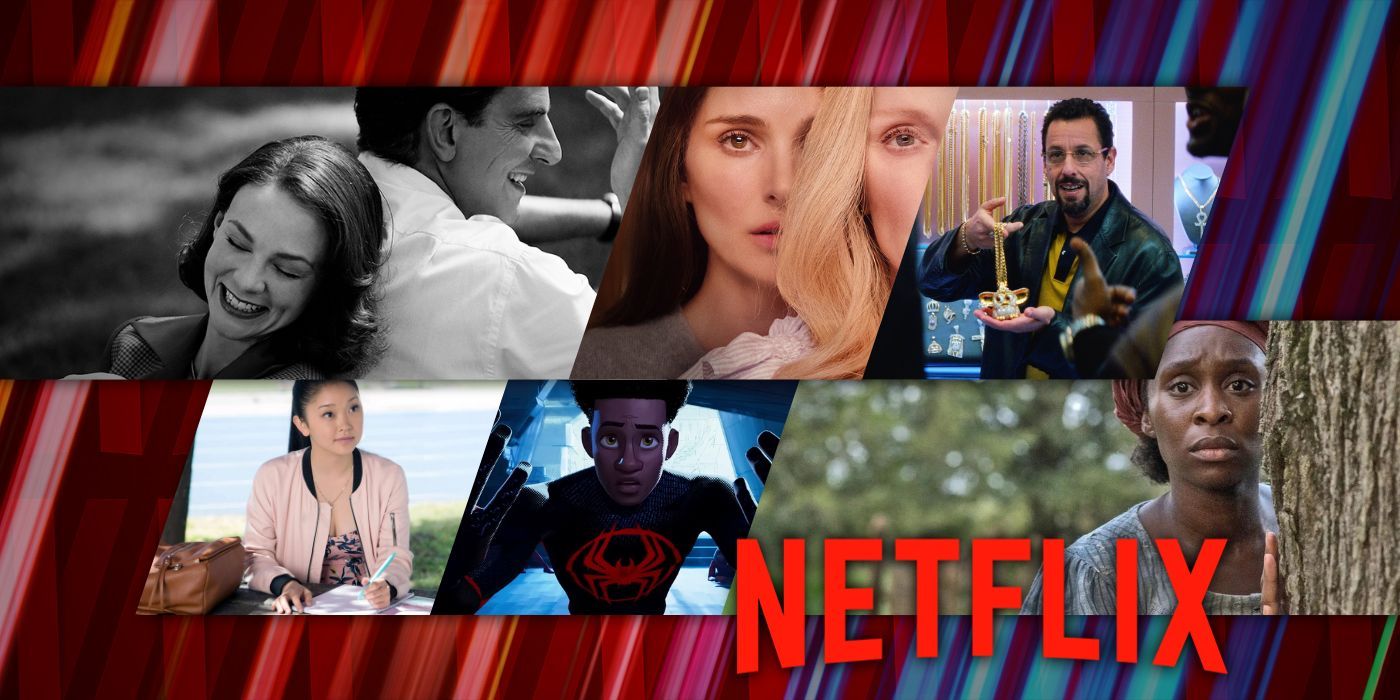
30 Best Movies On Netflix Right Now (April 2024)
From Marriage Story to Dune and They Cloned Tyrone, here are our picks for the best movies on Netflix for everyone to enjoy this month.What Happens At The End Of The Power Of The Dog?
What Is The Cause Of Phil's Death
The Power of the Dog's tense ending begins with Phil's growing hatred for Rose as she requests that the Native Americans on their land take all the cowhide that Phil has been using to make Peter a rope. Phil sees making this rope and forming this bond with Peter as a way of recreating the relationship he had with his mentor Bronco Henry before the older cowboy's death; it's a way for Phil to finally have some sense of connection and happiness again.
After Phil blows up about Rose and her drinking problem, Peter replies that he has some cowhide he has saved to finish the rope with. Unbeknownst to Phil, Peter has taken the hide off a diseased dead cow earlier in the film. Phil then gets to work, soaking his hands in the same liquid that the diseased cowhide is in, not wearing any gloves and with a large open cut on his hand. The next day, he falls sick, and George takes him to the doctor, but he doesn't make it, succumbing to his infection.
At Phil's funeral, it is suggested to George that Phil died from anthrax, but George dismisses this notion because Phil was always very clear about not working with diseased animals. After Phil's death, the final scene shows Peter in his room, handling the rope that Phil had made for him with gloves on, but he ultimately pushes the rope under the bed, dismissing it as he hears George and Rose come home from the funeral. Peter looks out his bedroom window to see the two embracing and smiles to himself.
What Were Peter's Intentions With Phil?
Peter Was Always His Mother's Protector
The Power of the Dog explains the son's love for his mother and his willingness to protect her happiness at all costs. This plays heavily into the film's finale. It's implied throughout that Peter is gay, which aligns with The Power of the Dog meaning. Peter also eventually learns of Phil's relationship with another man during his youth. Phil, trying to keep up the front of a hyper-masculine cowboy, is reluctant to directly confirm his romantic relationship with Bronco Henry to Peter. Still, his silence is enough to suggest that the two were more than just friends.
Peter is present when Phil cuts his hand on a fencing job the two of them are on, so he begins to concoct his plan. Peter intends to get rid of Phil, who he sees as a threat to his mother with his cruel treatment of her. Whereas Phil sees almost a budding romance between himself and Peter, Peter is actually manipulating Phil and plotting to get rid of him for good, fulfilling the promise he makes in the opening narration of doing right by his mother and protecting her.
Peter Poisoned Phil To Protect His Mother
What Is The Meaning Of The Movie's Title?
Whatever Phil and Peter's emotional intentions with each other, Peter purposefully poisoned Phil to eliminate his step-uncle as a threat and thus protect himself and his mother. After witnessing the harmful effect Phil's performative toxic masculinity has on Rose, Peter uses his own unique set of skills to remove Phil from the picture. Peter uses their similar sexuality to lull Phil into a false sense of companionship through the making of the lasso and also draws on his medical knowledge to ensure that the rope will kill Phil when the Anthrax bacteria from the dead cow enters his open wound.
This twist in which Peter poisons Phil to protect his mother in The Power of the Dog's ending is also where the film takes its mysterious title. Following Phil's death, Peter is seen reading a Bible in his room. It's open to a significant verse from Psalms 22: "Deliver my soul from the sword; my darling from the power of the dog." It's implied that Phil is the dog and that Rose, or even Peter himself, is the darling being delivered by the poisoning plot.
Overarching Themes Of The Power Of The Dog
Phil's Toxic Masculinity Subverts Western Tropes
The Power of the Dog meaning is thematically rich, tackling toxic masculinity and its accompanying insecurities. This is displayed beautifully in the case of Phil, who is the most complex character in The Power of the Dog. At first, Phil puts up the front of a fearful leader; he's sarcastic and not particularly nice to those around him, but deep down, he just wants to find a connection with someone in the way he did with Bronco Henry.
Considering the time period and location of The Power of the Dog, as well as the company he keeps, Phil is unable to express his true self to anyone, which is also one of the reasons he taunts both Peter and Rose throughout The Power of the Dog. Phil looks at Peter as an inferior being at first, calling him a weakling, but gradually Phil begins to envy Peter, as the latter is more open and free about his feminine tendencies while also remaining strong-willed and tough in his own right. This is probably what sparks Phil's liking of Peter toward The Power of the Dog's ending.
The Real Meaning Of The Power Of The Dog's Ending
The Power Dynamic Switches In The Final Moments
The Power of the Dog's ending showed the poisonous way Phil treated those around him was his downfall. Phil keeps up a tough-as-nails, relentlessly mean persona with which he abuses Rose and Peter, and it leads to Peter plotting against him just as Phil is starting to warm up to him. The Power of the Dog is the tragic story of a character deluded into perpetuating the very toxic environment that would have persecuted him for his desires. It's also an alpha dog story, with Peter slowly proving his dominance over Phil despite being viewed as inadequately masculine.
Benedict Cumberbatch And Director Jane Champion Wanted To Create Conversations
Cumberbatch Explained The Duality Of Phil
When asked about The Power of the Dog meaning, both director Jane Champion and actor Benedict Cumberbatch had strong opinions. They didn't want The Power of the Dog explained in simple terms. They wanted the movie's ending to start conversations about what happened and why. Cumberbatch considered long and hard who and what Phil was as a human being. He explained (via Deadline):
"For me, it was a real key into understanding who this person was fundamentally, that these two things existed in him, this very strong front of masculinity for your own machismo. And this sensuality, this ability to be very fluid and delicate with his hands."
Cumberbatch went on to say that one of the things that he and Champion wanted to get people talking about was this question of masculinity at the center of most Westerns (via Digital Spy).
"There's also a massive intolerance in the world at large towards homosexuality, still, towards an acceptance of the other, of any kind of difference, and no more so than in this prism of conformity, in the sense of what is expected of a man in the Western archetype mold of masculinity."
Seeing The Power of the Dog taking a man as violent and masculine as Phil and breaking him down before his tragic end, The Power of the Dog explained that nothing is certain regardless of a person's place in society.
Sources: Deadline, Digital Spy

